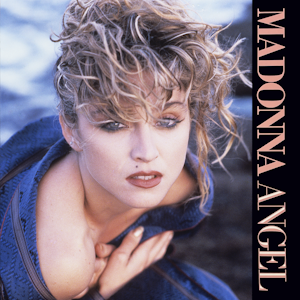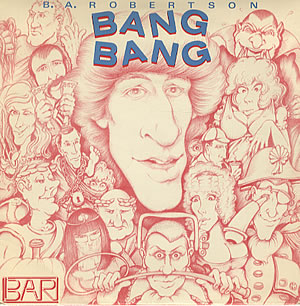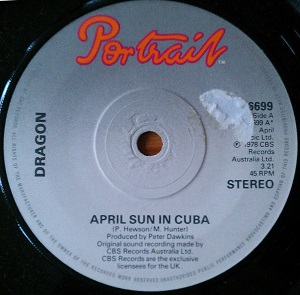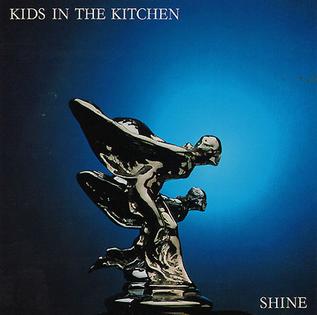
"Mamma Mia" is a song by the Swedish pop group ABBA, written by Benny Andersson, Björn Ulvaeus and Stig Anderson, with the lead vocals shared by Agnetha Fältskog and Anni-Frid Lyngstad. It is the opening track on the group's third album, the self-titled ABBA (1975). The song was released in September 1975 as its sixth single. The song's name is derived from Italian, where it is an interjection used in situations of surprise, anguish, or excitement. It corresponds to the English interjection "my, my!" but literally means "my mum". The song was ABBA's first number one in the UK since "Waterloo" in 1974.

Christie Allen was an English-born Australian pop singer who had a successful career in Australia. Her top four hits on the Australian Kent Music Report Singles Chart were "Goosebumps" and "He's My Number One". Allen was voted the Most Popular Female Performer at the TV Week / Countdown Music Awards for 1979 and 1980. At the 1979 awards, "Goosebumps" also won the Best Songwriter award for Terry Britten. Allen died on 12 August 2008 of pancreatic cancer, aged 54.

"Computer Games" is a song by New Zealand band Mi-Sex, released in September 1979 in Australia and New Zealand as the second single from their debut studio album, Graffiti Crimes (1979). The song peaked at number 1 in Australia and 5 in New Zealand. The music video was filmed on location at what was at the time Control Data Corporation's North Sydney centre and included gameplay from the 1979 arcade games Speed Freak, Basketball and Star Fire. The single won the award for Best Australian Single at the 1979 TV Week/Countdown Music Awards.

"Angel" is a song by American singer Madonna from her second studio album Like a Virgin (1984). It was released on April 10, 1985 by Sire Records as the album's third single. Written by Madonna and Steve Bray, it was one of the first songs developed for the project and, according to Madonna, was inspired by a girl who is saved by an angel, and she falls in love with him. "Angel" was released as a 12" single with "Into the Groove" in some countries and charted likewise. Despite its relative success, "Angel" was one of the few Madonna singles from that time that did not have an official music video, because although it was planned, it was canceled due to the artist's busy schedule. Instead, a promotional clip comprising segments of her previous videos was released in the United Kingdom.

"Let's Go" is a song by American rock band the Cars, written by Ric Ocasek for the band's second studio album, Candy-O (1979). A new wave rock song, the song's hook was inspired by the Routers. The song's vocals are performed by bassist Benjamin Orr.

Terence Ernest Britten is an English-Australian singer-songwriter and record producer, who has written songs for Tina Turner, Cliff Richard, Olivia Newton-John, Status Quo and Michael Jackson amongst many others. Britten won the Grammy Award for Song of the Year in 1985 for "What's Love Got to Do with It".

"Bad Case of Loving You " is a 1978 song, written and originally recorded by Moon Martin and sung a year later by Robert Palmer. The song became one of Palmer's definitive hits.

No Exit is the third studio album by Australian rock band The Angels, released in June 1979. It reached No. 8 on the Australian album charts in July. One single was released from the album, "Shadow Boxer", which reached No. 25 on the charts in June.

"Bang Bang" is a song performed by BA Robertson. Co-written by Robertson with Terry Britten and produced by Britten, it was released as the second single from his third album Initial Success in 1979.

"Wouldn't Change a Thing" is a song performed by Australian singer-songwriter Kylie Minogue, recorded for her second studio album Enjoy Yourself (1989). The song was written by Stock Aitken Waterman, and was released on 24 July 1989 by Mushroom and PWL Records. The song was released as the second single off the album.

"April Sun in Cuba" is a song recorded by New Zealand group Dragon, released in October 1977. It is the first single to be released from Dragon's fourth studio album Running Free. "April Sun in Cuba" first charted on 7 November 1977, peaking at number 2 on the Kent Music Report Singles Chart and staying on the chart for 22 weeks. It also reached number 9 on the New Zealand singles chart. The b-side of the single, a non-album track called "Telephone", was credited to "Dr. Agony".

"Yesterday's Hero" is a pop song by John Paul Young. The song was written by George Young and Harry Vanda and was released in February 1975 as the lead single from Young's debut studio album, Hero (1975).

"Love an Adventure" is a song by Australian pop group Pseudo Echo. The song was released in January 1986 as the second single from their second studio album, Love an Adventure (1985). The song became the band's third Australian top ten single, peaking at number 6 on the Australian Kent Music Report.

Shine is the debut studio album by Australian new wave, pop group Kids in the Kitchen. It was released on 20 May 1985 via Mushroom Records. It peaked at No. 9 in Australia and was certified platinum for shipment of 70,000 copies. The line-up for most of its tracks was Scott Carne on lead vocals, Bruce Curnow on drums, Craig Harnath on bass guitar, Claude Carranza on lead guitar and Alistair Coia on keyboards, with the producer Mark S. Berry working on seven of its ten tracks. It provided six singles, "Change in Mood" (1983), "Bitter Desire" (1984), "Something That You Said", "Shine", "Current Stand", and "My LIfe". The album was re-released internationally in 1986 as Kids in the Kitchen by Sire Records for the European and American markets.

"Don't Throw Stones" is a song recorded by Australian rock band The Sports. The song was written by band members Stephen Cummings and Andrew Pendlebury. Released in February 1979 as the second single from the band's second studio album, Don't Throw Stones (1979), the song peaked at number 26 on the Australian Kent Music Report.
"Falling in Love with Only You" is an pop song written and produced by Terry Britten and recorded by Australian pop singer Christie Allen. The song was released in March 1979 as the second single from Allen's debut studio album, Magic Rhythm (1979). The song peaked at number 20 on the Kent Music Report in Australia.
"He's My Number One" is a pop song written by Terry Britten and B. A. Robertson and recorded by Australian pop singer Christie Allen. The song was released in January 1980 as the fourth single from Allen's debut studio album, Magic Rhythm (1979). The song peaked at number 4 on the Kent Music Report in Australia.

"Magic Rhythm" is an pop song written by Terry Britten and B. A. Robertson and recorded by Australian pop singer Christie Allen. The song was released in May 1980 as the fifth and final single from Allen's debut studio album, Magic Rhythm (1979). The song peaked at number 38 on the Kent Music Report in Australia.
"You Know That I Love You" is an pop song written and produced by Terry Britten and recorded by Australian pop singer Christie Allen. The song was released in September 1978 as Allen's debut single and lead single from Allen's debut studio album, Magic Rhythm (1979). The song peaked at number 67 on the Kent Music Report in Australia.

"My Obsession" is a song by Australian rock band Icehouse, which was released in 1987 as the third single from their sixth studio album Man of Colours. The song was written by Iva Davies and Robert Kretschmer, and produced by David Lord. "My Obsession" peaked at No. 12 on Australia's Kent Music Report chart and No. 88 on the US Billboard Hot 100.

















